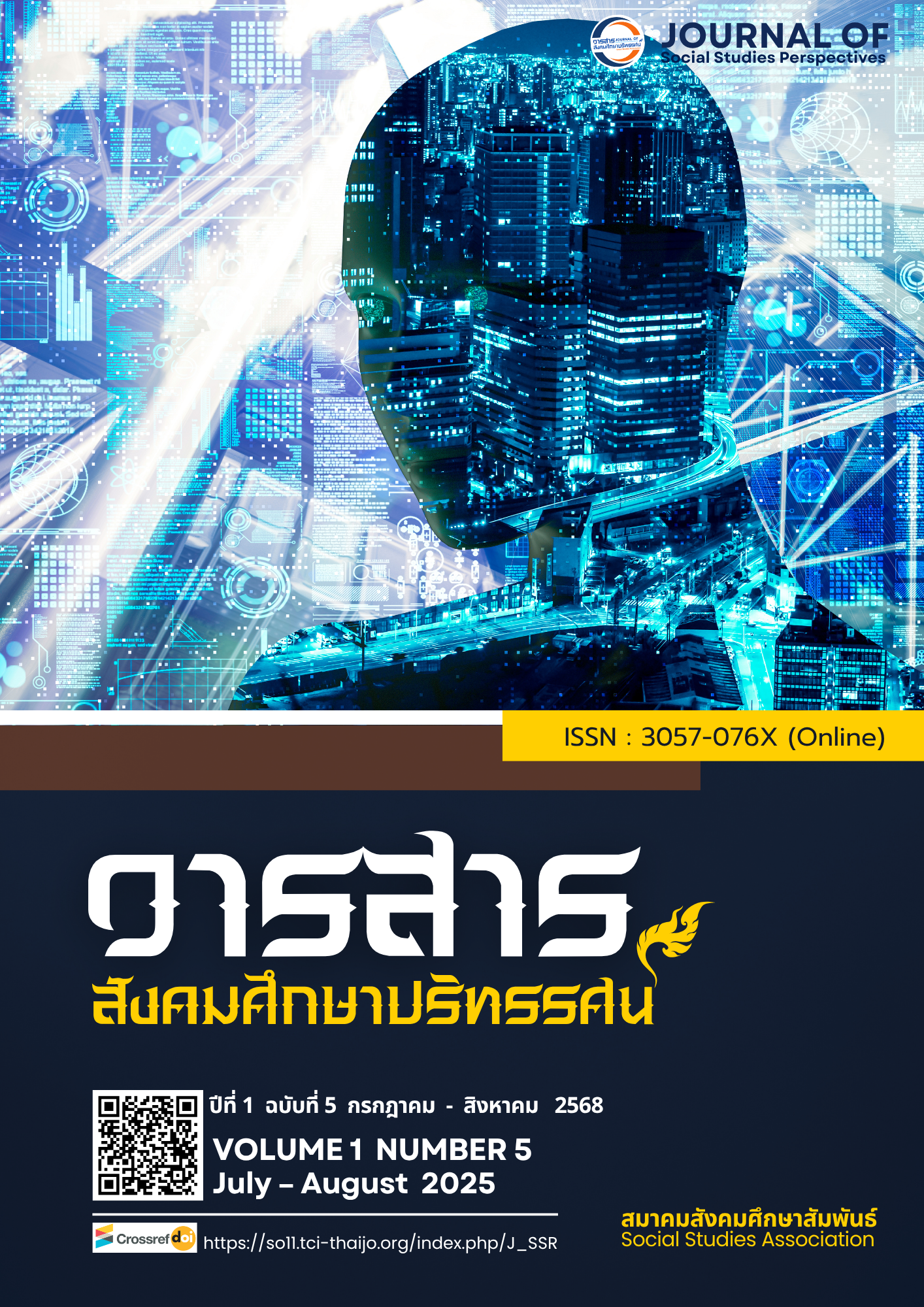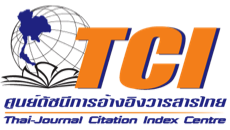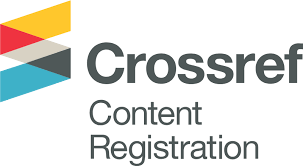การศึกษาสภาพ ความต้องการจำเป็น และแนวทางการพัฒนาหลักสูตรการศึกษาปฐมวัย พุทธศักราช 2568 ของสถานศึกษานำร่องในจังหวัดพระนครศรีอยุธยา
DOI:
https://doi.org/10.64186/jsp2218%20%20%20คำสำคัญ:
สภาพปัจจุบัน , สภาพที่พึงประสงค์ , ความต้องการจำเป็น , การศึกษาปฐมวัย , แนวทางการพัฒนาหลักสูตรปฐมวัยบทคัดย่อ
บทความวิจัยนี้มีวัตถุประสงค์เพื่อ 1) ศึกษาสภาพปัจจุบันและสภาพที่พึงประสงค์ 2) ประเมินความต้องการจำเป็น และ 3) พัฒนาแนวทางการพัฒนาหลักสูตรการศึกษาปฐมวัย พุทธศักราช 2568 ของสถานศึกษานำร่องในจังหวัดพระนครศรีอยุธยา โดยใช้การวิจัยแบบผสานวิธี กลุ่มตัวอย่างที่ใช้ในการวิจัย ได้แก่ ผู้บริหารสถานศึกษา จำนวน 45 คน ได้มาโดยการเลือกแบบเจาะจง และ ครูปฐมวัย จำนวน 75 คน ได้มาโดยวิธีการสุ่มแบบมีระบบ รวมทั้งสิ้น 120 คน เครื่องมือที่ใช้ในการวิจัย ได้แก่ 1) แบบสอบถามเพื่อการวิจัย และ 2) แบบสัมภาษณ์แบบมีโครงสร้าง สถิติที่ใช้ในการวิเคราะห์ข้อมูล ได้แก่ ร้อยละ ค่าเฉลี่ย ส่วนเบี่ยงเบนมาตรฐาน และ ค่าดัชนีการจัดลำดับความสำคัญของความต้องการจำเป็นแบบปรับปรุง ผลการวิจัยพบว่า 1) สภาพปัจจุบันโดยภาพรวมอยู่ในระดับมาก ส่วนสภาพที่พึงประสงค์โดยภาพรวมอยู่ในระดับมากที่สุด 2.) ความต้องการจำเป็นของการพัฒนาหลักสูตรการศึกษาปฐมวัย พุทธศักราช 2568 ของสถานศึกษานำร่องในจังหวัดพระนครศรีอยุธยา พบว่า ด้านที่มีค่าเฉลี่ยสูงกว่าค่าเฉลี่ยโดยภาพรวม โดยเรียงลำดับความต้องการจำเป็นจากมากไปหาน้อย คือ ด้านการออกแบบและพัฒนาหลักสูตร ด้านความรู้ความเข้าใจเกี่ยวกับหลักสูตร ด้านการจัดการเรียนรู้ตามหลักสูตร ด้านการมีส่วนร่วมของผู้ที่มีส่วนเกี่ยวข้อง และด้านการบริหารจัดการหลักสูตร 3. การประเมินแนวทางการพัฒนาหลักสูตรการศึกษาปฐมวัย พุทธศักราช 2568 ในสถานศึกษานำร่องจังหวัดพระนครศรีอยุธยา พบว่า มีความเหมาะสมอยู่ในระดับมากที่สุด และความเป็นไปได้อยู่ในระดับมาก โดยมีข้อเสนอแนะสำคัญดังนี้ 1) จัดเวิร์กชอปหรือ PLC ให้ครูและผู้บริหารร่วมออกแบบหลักสูตรที่สอดคล้องบริบทท้องถิ่นและเป้าหมายหลักสูตร 2) อบรมเชิงปฏิบัติการให้ครูทุกคนในสถานศึกษานำร่อง เพื่อสร้างความเข้าใจเรื่องเป้าหมาย ความสามารถ และพัฒนาการเด็ก 4 มิติ 3) พัฒนาชุดกิจกรรมต้นแบบที่เน้นการเรียนรู้ผ่านการเล่นและยึดเด็กเป็นศูนย์กลาง 4) จัดประชุมหรืออบรมผู้ปกครองให้เข้าใจหลักสูตรใหม่และบทบาทในการสนับสนุนลูก และ 5) พัฒนาระบบติดตามและประเมินผลที่ยืดหยุ่นและเหมาะสมกับระดับปฐมวัย
เอกสารอ้างอิง
Ahmad, N., & Ismail, H. (2021). Contextual curriculum development: A strategic approach to enhance early childhood education in Malaysia. Journal of Curriculum Studies Research, 3(2), 45-58.
Bronfenbrenner, U. (1979). The ecology of human development: Experiments by nature and design. Harvard University Press.
Chand, S. P., & Kumar, K. K. (2025). The role of preschool and primary school teachers in curriculum development. Research on Preschool and Primary Education, 3(1), 157-165.
Che Mat, N., & Jamaludin, K. A. (2024). Effectiveness of practices and applications of student-centered teaching and learning in primary schools: A systematic literature review. International Journal of Academic Research in Progressive Education and Development, 13(3), Article 21733.
Mongkolchaiaranya, P., & Wongwisate, P. (2020). Guidelines for developing a competency-based curriculum for early childhood in local communities. Journal of Social Studies Review, 35(2), 134-150.
Phansang, S. (2020). Curriculum management in early childhood education of schools under the Nakhon Ratchasima Primary Educational Service Area Office 1 (Master’s thesis, Nakhon Ratchasima Rajabhat University).
Piaget, J. (1952). The origins of intelligence in children. International Universities Press.
Pimpa, N., & Moore, T. (2020). Curriculum development for early childhood education: A local context perspective. International Journal of Early Childhood Education, 26(2), 105-120.
Pimraka, T., & Phunpol, W. (2019). Development of early childhood education curriculum to promote local wisdom. Journal of Social Studies Review, 34(3), 150-167.
Rattanamongkol, T., & Srisuwan, T. (2018). Early childhood education and the role of learning through play. Journal of Social Studies Review, 33(2), 78-95.
Ruangsri, N., & Prateepthong, S. (2021). Integrating local wisdom with early childhood learning activities: A case study of schools in a world heritage city. Journal of Social Studies Review, 36(2), 99-115.
Saengmanee, S. (2021). The development of an early childhood curriculum through participatory approach in kindergarten schools (Master’s thesis, Srinakharinwirot University).
Srisaard, B. (2019). Basic research (10th ed.). Suweeriyasarn.
Suwannakit, S., & Phakdeesettakul, S. (2022). Developing a local curriculum to promote multiple intelligences in early childhood. Khon Kaen University Journal of Education, 45(1), 20-35.
Thongsuk, S., & Saengpetch, C. (2020). The role of teachers in promoting early childhood development in primary schools. Journal of Social Studies Review, 35(1), 112-128.
UNESCO. (2021). The importance of quality early childhood education for sustainable development. https://www.unesco.org
Vygotsky, L. S. (1978). Mind in society: The development of higher psychological processes. Harvard University Press.
Wirachai, P., & Suksuwan, W. (2022). Feasibility analysis as a critical step in early childhood curriculum reform. International Journal of Curriculum and Instruction, 14(1), 15-29.
Zhou, Y., & Luo, F. (2023). Transforming early childhood curriculum: Stakeholder collaboration and localized innovation. International Journal of Early Years Education, 31(1), 23-39.
ดาวน์โหลด
เผยแพร่แล้ว
รูปแบบการอ้างอิง
ฉบับ
ประเภทบทความ
หมวดหมู่
สัญญาอนุญาต
ลิขสิทธิ์ (c) 2025 วารสารสังคมศึกษาปริทรรศน์

อนุญาตภายใต้เงื่อนไข Creative Commons Attribution-NonCommercial-NoDerivatives 4.0 International License.
บทความนี้ได้รับการเผยแพร่ภายใต้สัญญาอนุญาต Creative Commons Attribution-NonCommercial-NoDerivatives 4.0 International (CC BY-NC-ND 4.0) ซึ่งอนุญาตให้ผู้อื่นสามารถแชร์บทความได้โดยให้เครดิตผู้เขียนและห้ามนำไปใช้เพื่อการค้าหรือดัดแปลง หากต้องการใช้งานซ้ำในลักษณะอื่น ๆ หรือการเผยแพร่ซ้ำ จำเป็นต้องได้รับอนุญาตจากวารสาร










